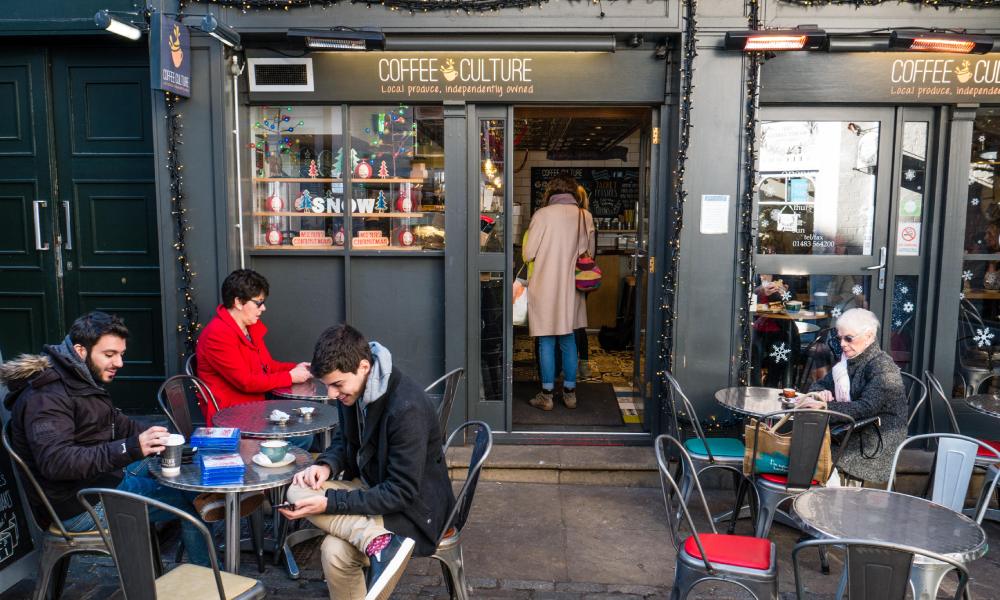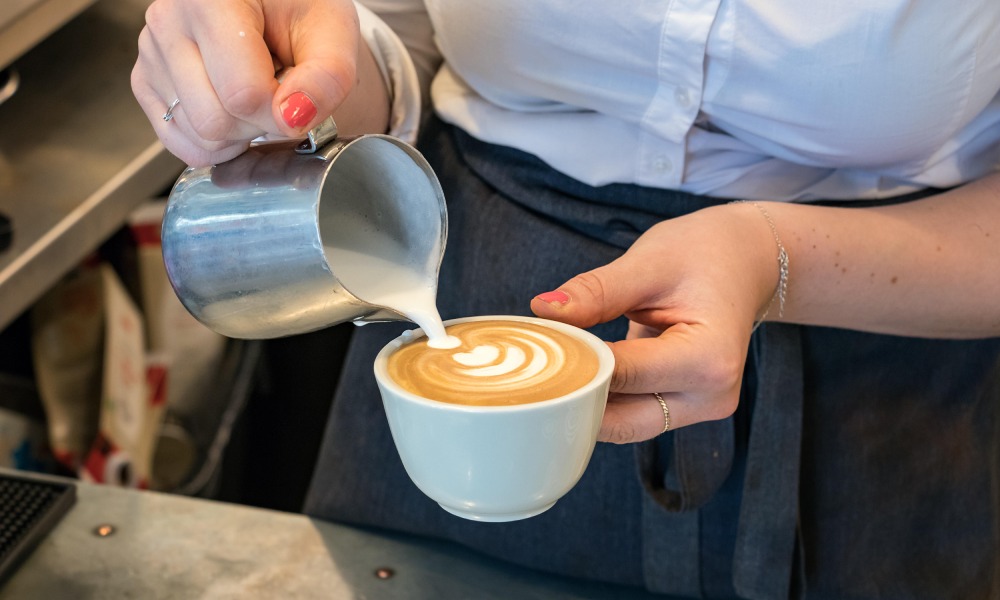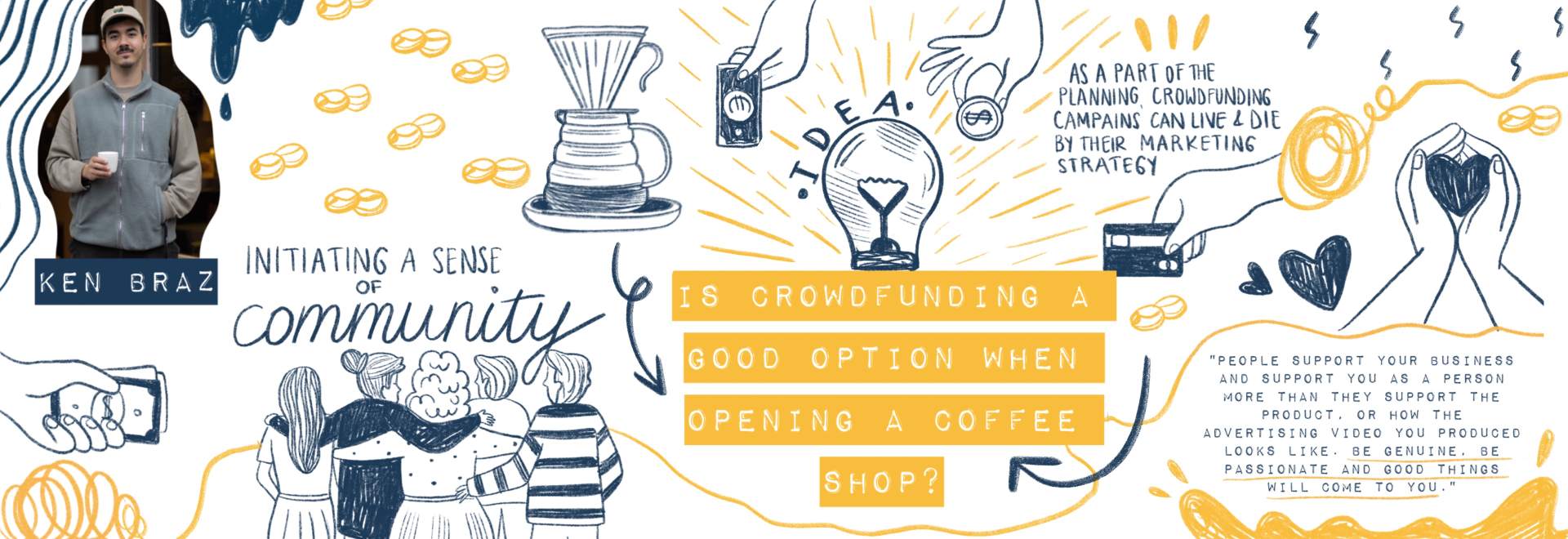Is crowdfunding a good option when opening a coffee shop?
Jordan Montgomery speaks with Ken Braz about the benefits crowdfunding can bring to prospective coffee shop owners – and the risks it carries, too.
Opening a coffee shop is not for the faint of heart. It requires substantial upfront investment, generally ranging from $80,000 to $275,000. With soaring overheads, market saturation, and turbulent coffee prices, it’s harder than ever to establish a successful coffee business.
For this reason, many prospective coffee shop owners turn to their communities for support – using crowdfunding to help finance their business idea.
Crowdfunding typically involves setting up a funding campaign on online platforms like Kickstarter, where individuals contribute money to support projects or business ventures – like opening a coffee shop.
This is different from traditional funding channels, as it doesn’t involve a financial return for investment. Instead, backers of crowdfunding campaigns are remunerated through some kind of rewards system.
This is often an attractive alternative for coffee shop owners, as it allows them to bypass bank loans. Having said this, crowdfunding is rarely enough to entirely fund opening a coffee shop. It is typically used alongside traditional sources of funding.
Additionally, crowdfunding isn’t without its challenges – and requires significant planning to be successful.

Initiating a sense of community
Many people choose to crowdfund because the process initiates a sense of community from the outset. Before you even start trading, you have established a group of customers who are loyal and interested in your venture.
“The crowdfunding campaign helped a lot in getting people interested in the business idea I wanted to pursue – since I wanted to create a business where there’s a lot of people involved, I thought it would be the best idea to include people from the beginning,” says Ken Braz, founder and head roaster of August 63, a micro-roastery and mobile coffee shop in Germany.
“I wanted to build up a community from day one and get people excited about building up a business together. You get some ‘regulars’ and a solid customer base before your product is even out – this is something that probably helps you more in the long term over a classical bank loan.”
While Ken did secure the necessary funds to launch his venture, he believes that aspiring business owners often underestimate the planning effort required for a successful campaign.
“I think I planned the whole campaign for around two months, and I exchanged with a few people that already submitted some crowdfunding campaigns and tried to learn from their experiences,” he says.
As a part of the planning, crowdfunding campaigns can live and die by their marketing strategy.
“It’s impossible to reach your funding goal by only doing some social media posts and hope your friends, family or audience are going to invest – they have to feel that you are passionate about your goal to success and that you are willing to really go for it,” says Ken.
“You need to come up with a communication plan including media, press, events and many more that are distributed throughout the whole campaign.”
The nature of crowdfunding deeply involves the funders. This is a good thing because it established a group of loyal supporters. On the flip side, your backers need regular updates that will keep them on board.

The financial risks
A campaign requires thorough financial planning and should tie in with the overall business plan. This includes determining your target amount and incorporating tiers of support.
“You have to make sure your campaign is properly planned, that the products you’re willing to offer are well thought through,” Ken says.
Around 9% of Kickstarter campaigns fail to deliver on their rewards. Coffee shops using these platforms must carefully cost their rewards system and ensure they can keep their promises.
“I honestly didn’t properly calculate the prices of many rewards, so in the end, I couldn’t even use a lot of money from what I gathered,” says Ken. “I still had to take a small loan from the bank to be able to start up.”
Moreover, popular crowdsourcing platforms typically claim 5-8% of pledged funds to cover fees, and taxes on crowd-sourced funds can vary based on the project’s nature and location.
“If you gather €10,000 at a crowdfunding campaign, you’re probably only able to keep around 30-40% of that,” says Ken. “You have to pay taxes on the sum since it’s mostly products you already sell before they are produced, and you have a lot of production costs as well.”
Ultimately, crowdfunding is not as straightforward as it may seem. Especially with a venture as risky as opening a coffee shop, a thorough financial plan is needed to ensure your business is left with enough money when the campaign comes to an end.
But the risks don’t stop there.
One of the biggest risks is the binary nature of crowdfunding. If a campaign fails to reach its target goal within the specified timeframe, all contributed funds are returned to backers – leaving prospective coffee shop owners with nothing.
A failed crowdfunding campaign can not only waste valuable time and resources for a new coffee business, but it can also damage the reputation before it has had the opportunity to begin.
Despite all the risks, Ken believes that the social capital gained from such campaigns is invaluable: “If you feel like creating a crowdfunding campaign, go for it – but make sure to put a lot of time, passion and effort into it,” he says.
“People support your business and support you as a person more than they support the product, or how the advertising video you produced looks like. Be genuine, be passionate and good things will come to you.”








